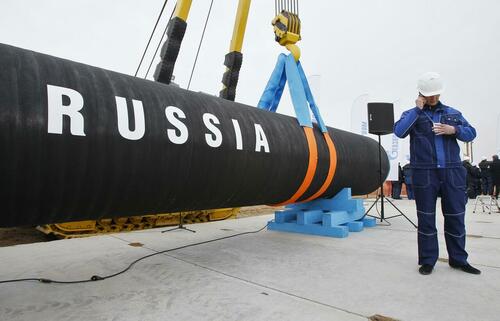
By Michael Kern of OilPrice.com
Russia’s oil production could drop to as low as 9 million barrels per day (bpd) in December when the EU embargo on imports of Russian crude oil enters into force, Russian news agency TASS reported on Wednesday, citing analysts at the Energy Development Center. “We expect that production in December will fall by 1.5-1.7 mln barrels per day compared to the June-October average, or 14%,” according to a report from the Energy Development Center cited by TASS.
The expected sharp drop in Russia’s oil production will lead to a spike in international oil prices, also considering that the OPEC+ group is reducing the target production as of November, the experts said.
Russia’s oil production, excluding condensate, for October came in well below its production quota for the month, at just 9.9 million bpd, Russian Deputy Prime Minister Alexander Novak said earlier this month.
Russia’s October production was 1.1 million bpd below its quota of 11 million bpd assigned under the OPEC+ agreement, but mostly in line with Novak’s estimates made last month.
For November, Russia’s oil production quota under the OPEC+ pact will drop from 11 million bpd to 10.5 million bpd.
In October, Russian oil production, including condensate, was 1.47 million tons of oil per day, or 10.78 million bpd. The October production was slightly down from the 10.8 million bpd reported for September
However, the production decline could accelerate from November as the EU prepares to introduce an embargo on imports of Russian crude from December 5, Russian business daily Kommersant reported at the end of October, quoting sources familiar with the situation.
Analysts have estimated that around 2 million bpd-3 million bpd of Russian oil and products may have to find new homes after the EU embargo enters into force. Russia has redirected a large part of its flows eastwards to Asia, but it may not be able to accommodate immediately and find willing buyers for the trade flows previously going to Europe, especially with the ban on services handling Russian oil cargoes unless the oil is sold at or below a certain price cap.
By Michael Kern of OilPrice.com
Russia’s oil production could drop to as low as 9 million barrels per day (bpd) in December when the EU embargo on imports of Russian crude oil enters into force, Russian news agency TASS reported on Wednesday, citing analysts at the Energy Development Center. “We expect that production in December will fall by 1.5-1.7 mln barrels per day compared to the June-October average, or 14%,” according to a report from the Energy Development Center cited by TASS.
The expected sharp drop in Russia’s oil production will lead to a spike in international oil prices, also considering that the OPEC+ group is reducing the target production as of November, the experts said.
Russia’s oil production, excluding condensate, for October came in well below its production quota for the month, at just 9.9 million bpd, Russian Deputy Prime Minister Alexander Novak said earlier this month.
Russia’s October production was 1.1 million bpd below its quota of 11 million bpd assigned under the OPEC+ agreement, but mostly in line with Novak’s estimates made last month.
For November, Russia’s oil production quota under the OPEC+ pact will drop from 11 million bpd to 10.5 million bpd.
In October, Russian oil production, including condensate, was 1.47 million tons of oil per day, or 10.78 million bpd. The October production was slightly down from the 10.8 million bpd reported for September
However, the production decline could accelerate from November as the EU prepares to introduce an embargo on imports of Russian crude from December 5, Russian business daily Kommersant reported at the end of October, quoting sources familiar with the situation.
Analysts have estimated that around 2 million bpd-3 million bpd of Russian oil and products may have to find new homes after the EU embargo enters into force. Russia has redirected a large part of its flows eastwards to Asia, but it may not be able to accommodate immediately and find willing buyers for the trade flows previously going to Europe, especially with the ban on services handling Russian oil cargoes unless the oil is sold at or below a certain price cap.






